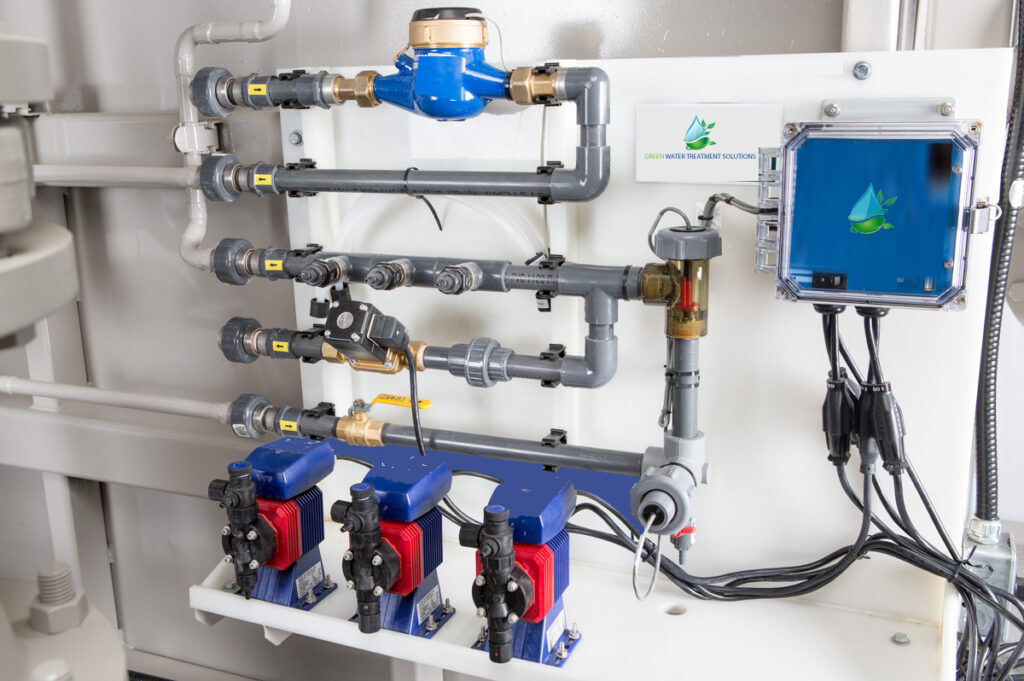Chemical Dosing and Control
Chemical dosing and control are critical components in a wide range of industrial processes, ensuring precise chemical application and maintaining optimal system performance. This technology is employed in sectors such as water treatment, manufacturing, food and beverage processing, pharmaceuticals, and more.
What is Chemical Dosing?
Chemical dosing involves the controlled addition of chemicals into a process to achieve a desired reaction or condition. This could be for purposes such as disinfection, pH adjustment, coagulation, and scaling prevention. The precise control of chemical dosing is essential to ensure effectiveness, efficiency, and safety.

Key Components of a Chemical Dosing System
Dosing Pumps: These pumps precisely measure and inject chemicals into the system. Types include diaphragm, peristaltic, and piston pumps.
Storage Tanks: Securely store chemicals before dosing, often designed to resist corrosion and chemical reactions.
Control Systems: Automated systems that monitor and adjust dosing rates based on real-time data and feedback.
Mixing Chambers: Ensure chemicals are evenly distributed within the system.
Sensors and Monitors: Detect and measure chemical levels, flow rates, and other critical parameters.
Benefits of Chemical Dosing and Control
Accuracy: Precise control over chemical quantities ensures optimal reaction conditions and avoids waste.
Efficiency: Automated systems reduce manual intervention, saving time and labor costs.
Safety: Controlled dosing minimizes the risk of hazardous chemical exposure and environmental contamination.
Consistency: Maintains stable process conditions, enhancing product quality and system reliability..
